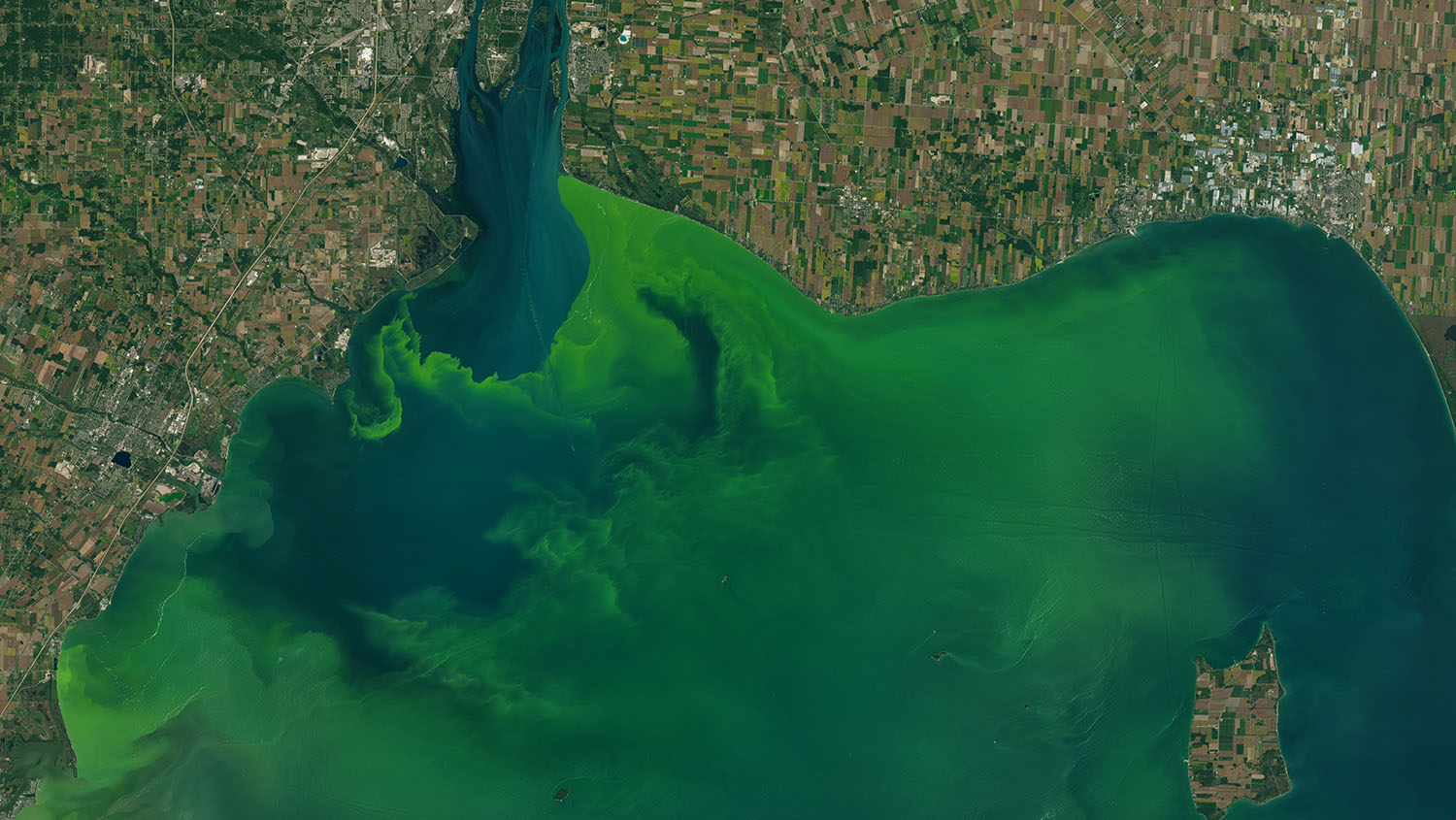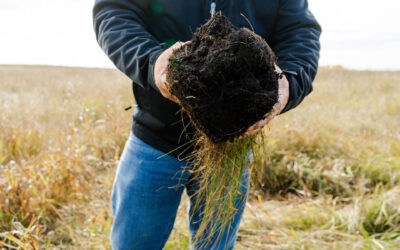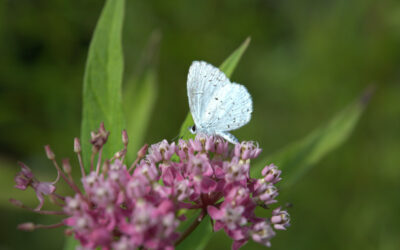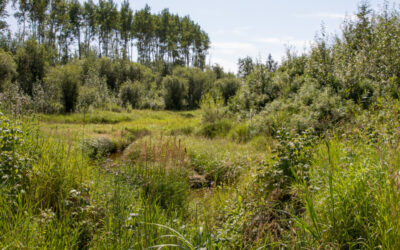
With funding from RBC Tech for Nature, ALUS will work with the University of Guelph’s Dr. Wanhong Yang to leverage a sophisticated, made-in-Canada modelling tool, IMWEBs, to support grassroots projects that build nature-based infrastructure in the Lake Erie Basin.
These projects will help address harmful algal blooms (HABs) in Lake Erie that are estimated to incur $6 billion in environmental and economic damages to commercial fisheries, water treatment and tourism over the next 30 years in Canada, alone. Natural infrastructure will also increase resilience to climate change, predicted to increase nutrient runoff, which fuels HABs in Lake Erie.
“We are tremendously grateful to RBC for their support of this cornerstone project,” said Lara Ellis, Senior Vice-President of Policy and Partnerships for ALUS. “Dr. Wanhong Yang’s IMWEBs is a proven tool with tremendous value, and we are excited to put it to use to support the health of Lake Erie.”
IMWEBs (Integrated Modelling for Watershed Evaluation of BMPs) is the only system in Canada that quantifies the ecosystem services (carbon storage, water quality/quantity, biodiversity) provided by nature restoration at site, field, farm, watershed and regional levels. The IMWEBs model will integrate environmental data and project characteristics to predict project outcomes, including water quality improvement, flood and drought mitigation, GHG emissions reductions and nutrient retention.
With RBC’s support, the ALUS Test Transfer project will deploy IMWEBs to three Lake Erie sub-watersheds (Kettle Creek, Catfish Creek, Big Otter Creek) to quantify and help prioritize ALUS stewardship projects with the potential to deliver the greatest benefits. The project will support local decisions, drive incremental investment, and most importantly, improve water quality, carbon sequestration and biodiversity.
ALUS will be sharing more details on the project, project partners, its impacts and successes in the months to come.



